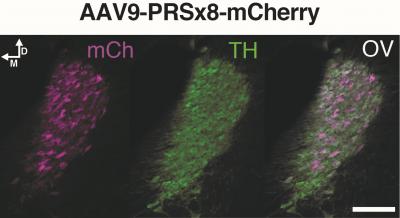New research from Texas A&M neuroscientist Dr. Stephen Maren found that stress increases the activity of fear-promoting regions of the prefrontal cortex, while at the same time reducing activity in neighboring fear-reducing regions

Credit: Stephen Maren/Texas A&M University
Dr. Stephen Maren, University Distinguished Professor in the Department of Psychological & Brain Sciences, recently published significant research on the psychological and neural basis of Post-Traumatic Stress Disorder (PTSD).
Published in Proceedings of the National Academy of Sciences of the United States of America (PNAS), one of the most-cited scientific journals in the world, the study looked at the areas of the brain that regulate emotion, including ceasing fear once danger has passed. Other factors, such as stress, can cause extinguished emotions of fear to relapse, which poses an issue for those with PTSD.
“Fear relapse represents a significant problem for individuals suffering from stress- and trauma-related disorders such as posttraumatic stress disorder,” according to the study.
Maren’s study examined the neurons in the brain that cause fear relapse, and the influence of stress on these fear-reducing regions of the brain. The data reveals new insight into the pathophysiology of PTSD, and may be able to help predict and prevent fear relapse with treatments that reduce the effects of stress on the brain.
“The work shows that stress increases the activity of fear-promoting regions of the prefrontal cortex, while at the same time reducing activity in neighboring fear-reducing regions,” Maren said. “This shift in brain activity could be mimicked by increasing the activity of neurons that release the fight-or-flight neurotransmitter, norepinephrine. This finding paves the way for new treatments that reduce fear and its relapse after therapy.”
###
Dr. Stephen Maren is a world-renowned neuroscientist who joined the Department of Psychological and Brain Sciences at Texas A&M University in 2012. Maren’s research focuses on the neural systems for emotion, learning, and memory as well as contextual regulation of memory encoding and retrieval, and fear, anxiety, and PTSD. Maren is also a member of the Brain & Behavior Research Foundation’s Scientific Council.
Media Contact
Alix Poth
[email protected]
Original Source
https:/
Related Journal Article
http://dx.




